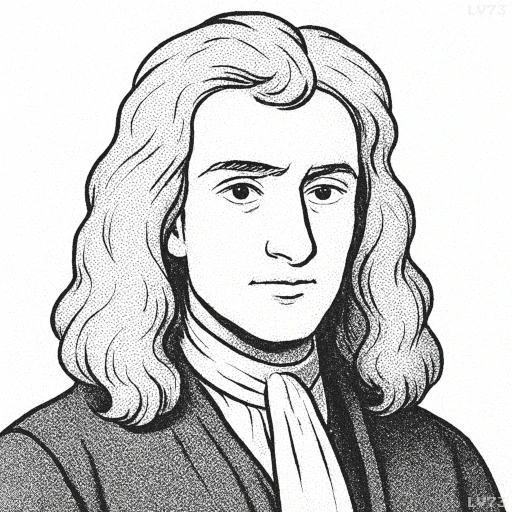“Just as the system of the sun, planets and comets is put in motion by the forces of gravity, and its parts persist in their motions, so the smaller systems of bodies also seem to be set in motion by other forces and their particles to be variously moved in relation to each other and, especially, by the electric force.”

- January 4, 1643 – March 31, 1727
- Born in England (UK)
- Natural philosopher, mathematician, physicist, astronomer, theologian
table of contents
Quote
“Just as the system of the sun, planets and comets is put in motion by the forces of gravity, and its parts persist in their motions, so the smaller systems of bodies also seem to be set in motion by other forces and their particles to be variously moved in relation to each other and, especially, by the electric force.”
Explanation
In this quote, Isaac Newton is drawing an analogy between the motion of celestial bodies governed by gravity and the motion of smaller systems of particles, particularly highlighting the role of electric forces in these systems. Newton is suggesting that just as the solar system—with its sun, planets, and comets—is governed by gravitational forces, smaller systems of particles, such as those found in matter, are governed by other forces, with a particular emphasis on the electric force. While gravity governs the large-scale motion of objects in space, electric forces (which he may have been referring to in an early understanding of electromagnetic forces) play a crucial role in the behavior of smaller, charged particles, such as those in atoms and molecules.
At the time Newton was writing, the full nature of electricity and magnetism was not yet understood, as these phenomena were later developed more fully by scientists like James Clerk Maxwell and Michael Faraday. However, Newton was already acknowledging that forces other than gravity (such as the electric force) were at play in the motion and interaction of particles at the microscopic level. His comparison of large-scale and small-scale forces hints at his broader vision of the universe as being governed by universal laws, whether they act on massive bodies or tiny particles.
In modern science, we now understand that electric forces are part of the electromagnetic force, one of the four fundamental forces of nature, alongside gravity, strong nuclear force, and weak nuclear force. The discovery of electricity and magnetism has led to a deeper understanding of the behavior of particles at the atomic and molecular levels, providing the basis for much of modern physics, chemistry, and technology. Newton’s early intuition that forces, such as electricity, govern the motion of smaller bodies would eventually lead to the development of electromagnetic theory and has become fundamental in understanding the behavior of matter at all scales, from the subatomic to the cosmic.
Would you like to share your impressions or related stories about this quote in the comments section?
